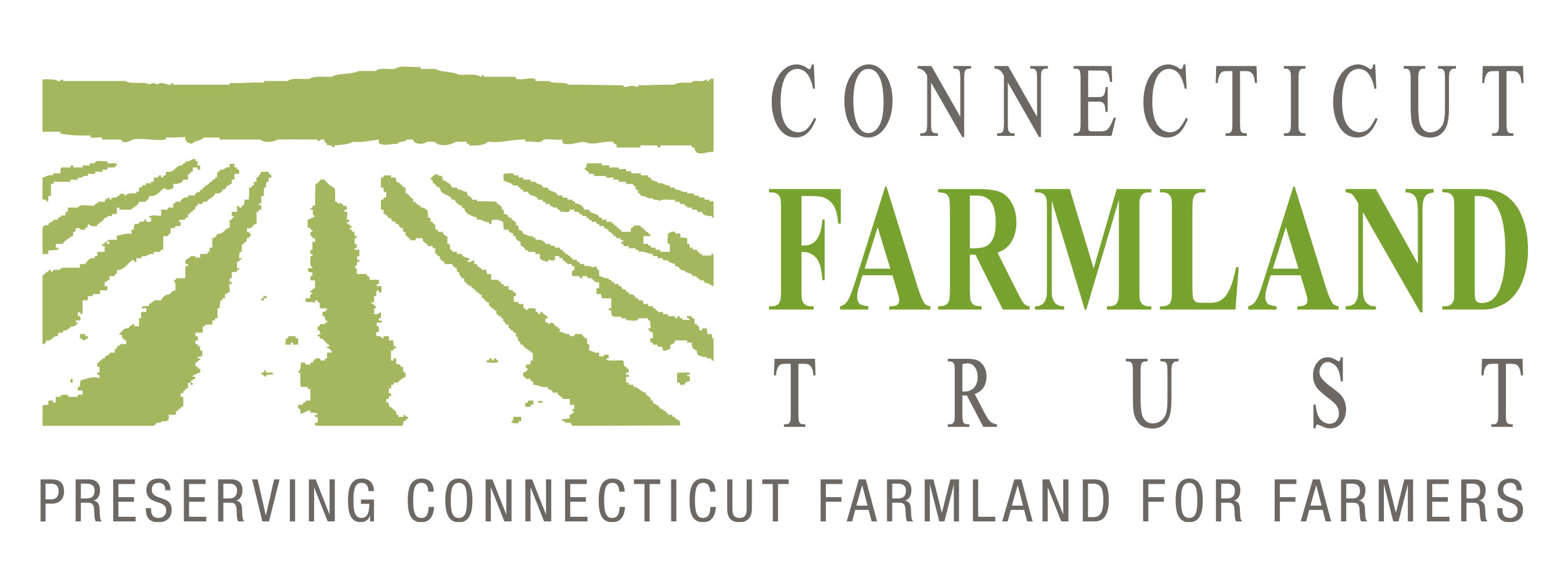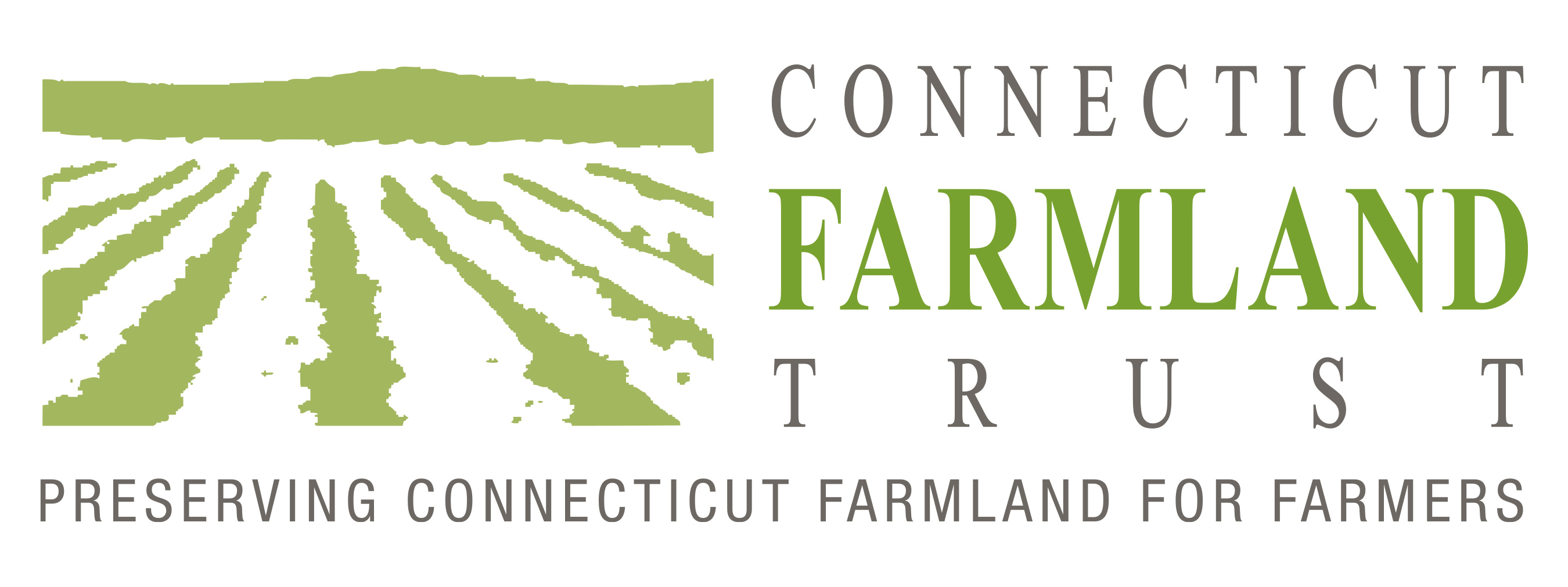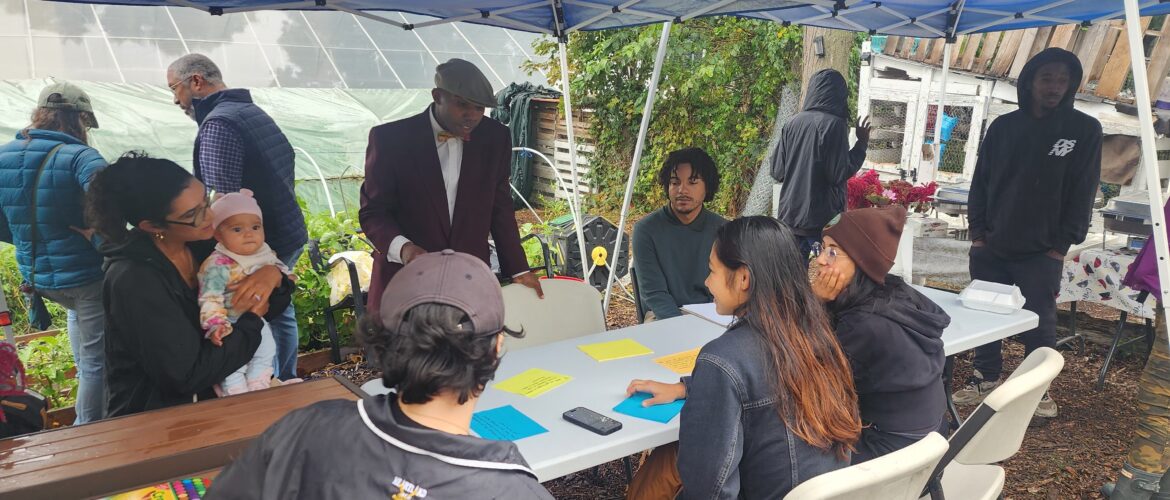By Rakim Grant and Kae Vargas
On September 30th, Connecticut Farmland Trust (CFT) held a special farmer listening circle. Kae Vargas, CFT’s Farmland Access Coordinator, Rakim Grant, and some CFT volunteers arrived at Urban Fresh Gardens farm in Waterbury expecting a beautiful day. Greeted by unexpected rain we hastily set up tents and got to work wiping down drenched tables. We weren’t alone. CFT’s team was joined by students and staff from Bailey College of the Environment at Wesleyan University, a team from the New Connecticut Farmers Alliance (NCTFA), and many Black, Indigenous, and People of Color (BIPOC) farmers all wringing out towels as we finished setting up.
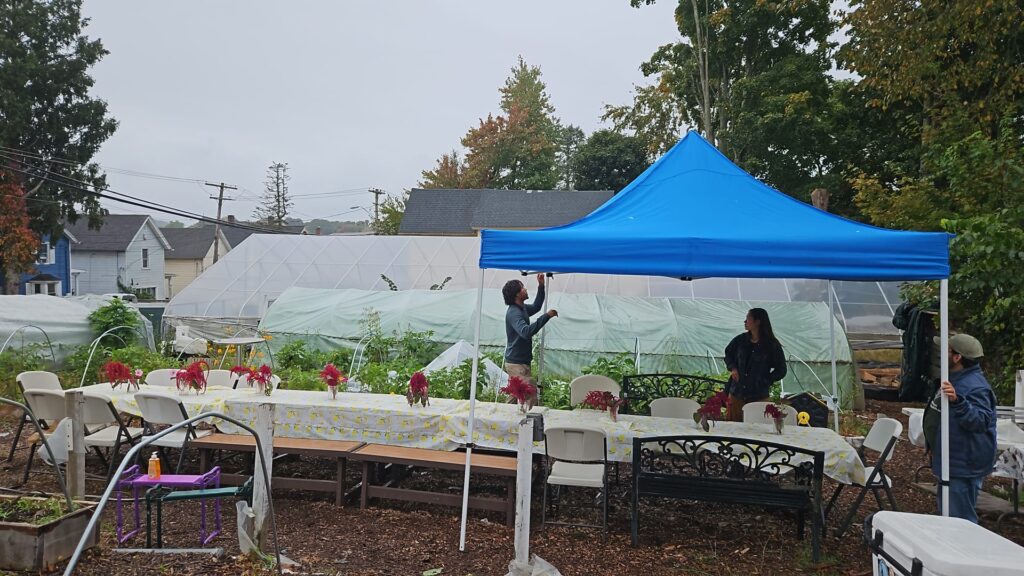
CFT’s mission is to protect CT farmland for current and future generations of farmers, and we are proud of having conserved more than 7,700 acres ourselves and with partners. But in this work, our focus on farmland owners has meant we have not engaged with BIPOC farmers’ concerns. Historically BIPOC farmers have not had land or wealth that has been passed down for generations that allows farmers to explore conservation; they are still fighting for access.
Less than one percent of farmland owners in CT identify as BIPOC, a disparity rooted in unequal access to land and credit, among many other types of discrimination. Despite the obstacles, the interest and farming skill is there. In the past couple years of coordinating CT FarmLink, we have seen that a significant percentage of listings are from self-identified BIPOC farmers looking to lease or buy farmland. As an organization, we know that the first step to being a good partner and supporting this access is acknowledging what we don’t know and taking steps to learn more on our own. The second step is cultivating relationships to learn even more.
This event was a first step in cultivating relationships. By getting these farmers together and listening, it gave us an opportunity to build connections. Ultimately, we know it will help us learn how to better serve current and future generations of farmers.
With tables and chairs semi-dry we began the circle. Cyrena Thibodeau of the CT Department of Agriculture and UConn Extension’s Robert Chang got us started with a short informational presentation about resources available through the Department of Agriculture.
Kae Vargas then facilitated our land access conversation. Attendees broke out into groups to discuss what it means to farm as BIPOC. Strewn about the tables were questions on colorful post-its about land access. Things like:
What challenges have you encountered in trying to access farmland in Connecticut? How have those challenges impacted your farming goals?
What resources or support systems have been most helpful for you in navigating land access?
What additional resources would better support BIPOC farmers?
Not only was this event an opportunity for these farmers to discuss these issues with their peer group, but for CFT and our partners to listen and use the information to shape our future work.
“My pen hurried across the page taking notes as I tried to keep up with the dynamic, insightful conversations.” – Rakim Grant
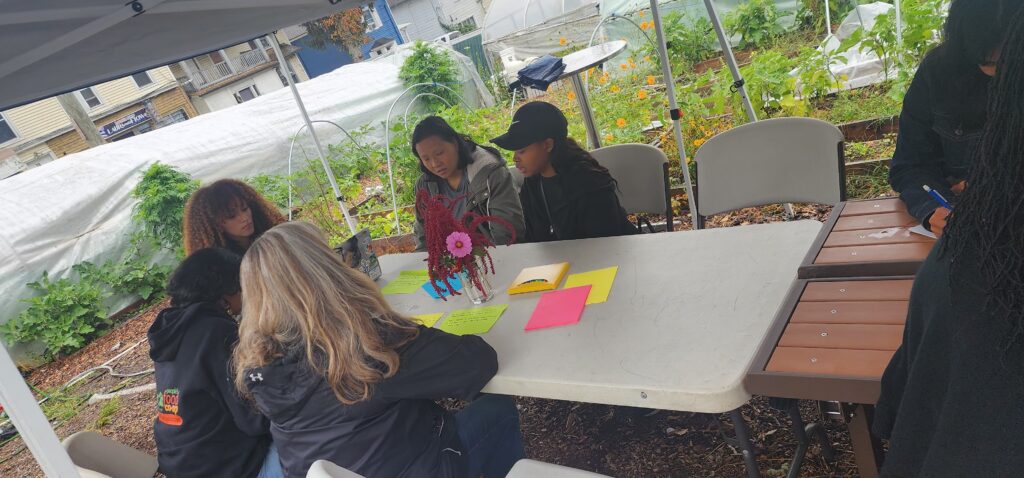
Attendees talked about things like overwhelming closing costs, and the struggle to set up shop in communities that may be unwelcoming. They also talked about remedies to these issues. For example, many of these farmers are doing amazing things with incubator programs designed to raise up the next generation. They opined on co-op programs, collective ownership, and other market access resources that have been instrumental in helping them thrive.
By the time attendees were through our questions, the tables were dry and the sun was out again. The conversation never really died down though. As attendees headed over to the food table, towards the authentic Jamaican food made by Urban Fresh Gardens’ own Gregory Knight, they continued the land access talk. As they dug in, they made plans for future resource sharing and cooperative endeavors.
This event was a first step to begin listening, to build relationships, and to make new connections. Going forward, we hope to continue bringing people together and learning new perspectives on farming.
